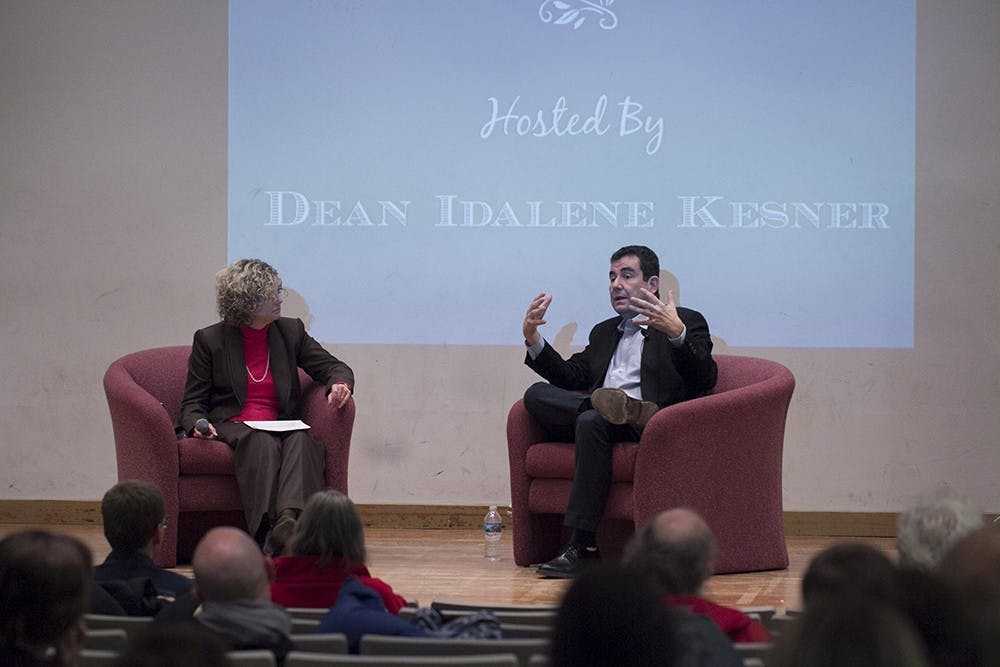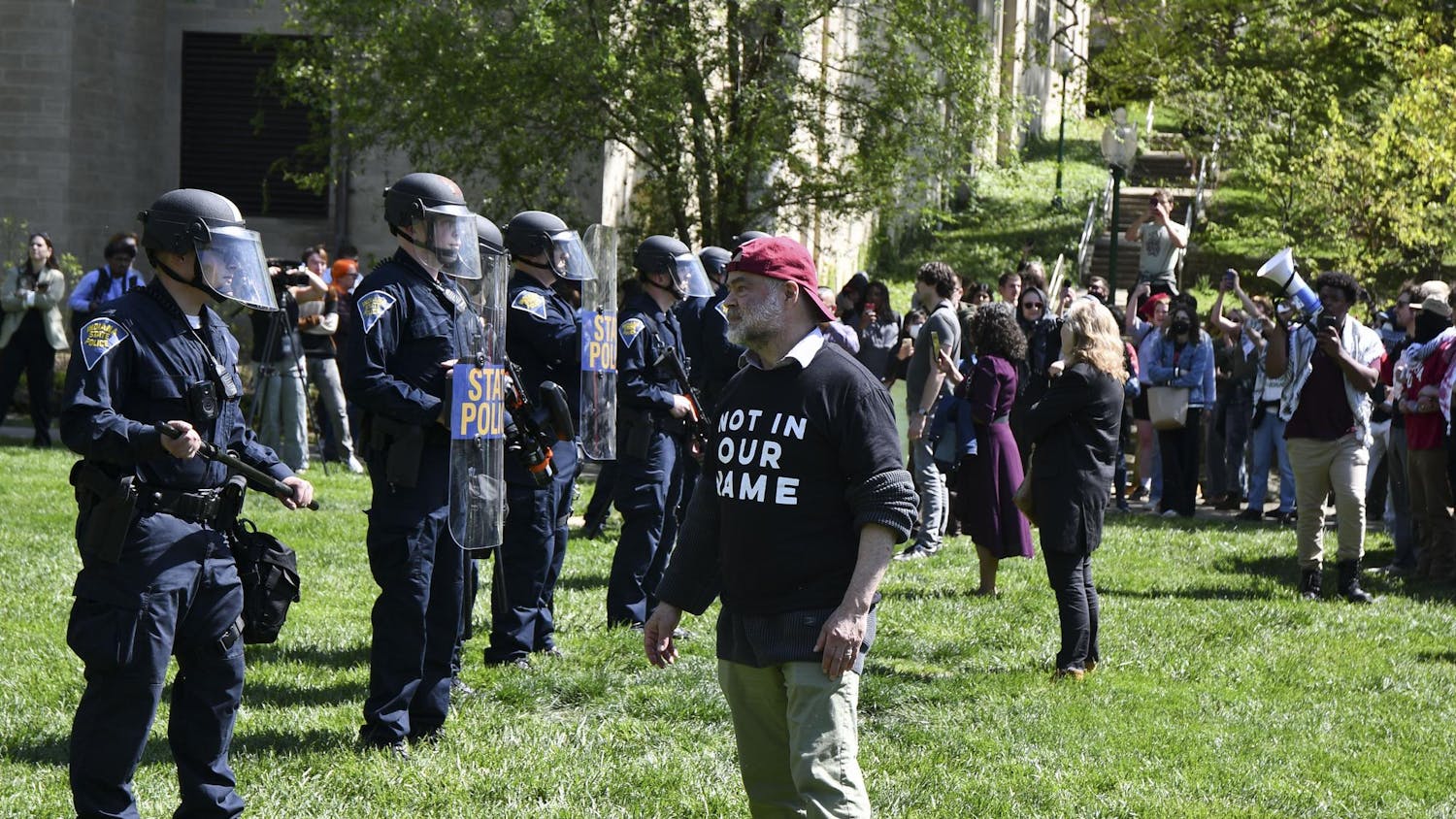The discussion was structured as an interview with the main commentator being Idie Kesner, dean of the Kelley School of Business. The event was sponsored by IU Hillel and was the main event in Israel Awareness Week, a week devoted to celebrating the country and its unique culture and customs it embodies as a democracy in the Middle East.
Shavit recently published a book titled “My Promised Land: a personal testament of a prominent writer exploring Israel’s past, ?present and future.” Through his writings and as a journalist, his discussion was focused toward the perspective of the students, with his interest being how Israel was incorporated in the current lifestyle of young adults and what the future of Israel would potentially look like from this explanation.
Shavit said he constantly finds himself challenging the dogmas of both the left and the right, but is personally challenged by the energy and issues of the current generation.
“This generation likes to contribute to something bigger than themselves,” Kesner said.
As a self-described brother from a distant land, Shavit explained how when we are constantly emerged in something, we don’t always appreciate it. Shavit is currently on a tour of 28 American university campuses sponsored by Hillel International in attempt to get this message across and try to maneuver the divide between generations with their relationship to Israel.
“This is a social, political universe built on voluntary values based on a system of a voluntary community,” Shavit said.
Focusing on the Jewish people as a whole, Shavit saw them as victims of their own success. The issue is the staggering of the generation gap, in neglect of still being a minority in this current world.
Using two movies as his examples for this divide, “The Exodus” and “Schindler’s List” were used. “The Exodus” portrayed Israel “handsome as Paul Newman” and “Schindler’s List” showed the realistic terrors that embodied the Holocaust. In the end, although both show Israel as this needed haven, both are considered ancient history to this current generation.
“I think a lot of my fellow Israelis are endangering the future of the Jewish people,” Shavit said. “We need to renew the narrative of what we are about.”
To build the needed relationship between the ?current youth and Israel, Shavit exposed the myth of Israelis. He displayed the extraordinary story that he felt embodied each Israeli citizen.
“So many people treat ?Israelis as either angels or demons,” Shavit said. “We are neither. We are humans.”
Israel’s roots were built by victims of Europe who took the decision to stop being the victim and move forward, Shavit said. Now, Israelis try to embrace a celebration of life when surrounded by an the threat of death, in his eyes.
When bringing back the context of passion and love, Shavit believes the future of Israeli and American ?Judaism can form a new kind of Zionism of the 21st century.
“There is a hunger for meaning, there is a thirst for inspiration,” Shavit said. “If we bring some vision about the democracy of Israel, I think we can make a ?difference.”






